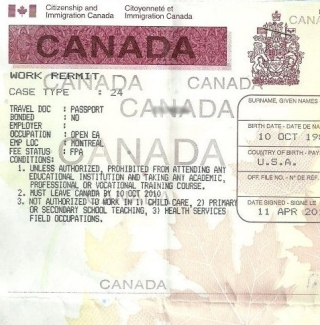No more post-study work permits for Nigerians, other international students at Canadian border


To reduce the bypass of wait times by temporary residents, Canada’s Immigration Ministry has removed the option for international students to apply for a post-graduation work permit (PGWP) at the country’s border.
The announcement was made by Marc Miller, Minister of Immigration, Refugees, and Citizenship Canada (IRCC), who stated that the decision is to eliminate “flagpoling,” which occurs when temporary residents leave and instantly re-enter Canada to receive same-day immigration services, avoiding normal wait times.
Flagpoling consumes enormous resources at the border, diverting officers from enforcement duties and generating delays for other visitors and products. Between March 1, 2023 and February 29, 2024, PGWP applicants made for almost one-fifth of those attempting to flagpole, Canadian immigration reports.
“While we continue to support and recognize the contributions of international graduates to Canada’s labour market, ‘flagpoling’ is unnecessary,” the minister said. “The time and effort required to process applications from ‘flagpolers’ takes officers on both sides of the border away from their crucial role in protecting the safety, security and prosperity of Canadians and Americans. This measure will help prevent this practice, while maintaining the integrity of our immigration system,” he added.
Nigerian students who previously relied on flagpoles would have to adapt to the new online application process. Canada, on the other hand, claims to be improving processing times and moving towards a more modernised and centralised application processing environment in order to promote more Canadian applications.
Efforts include expediting in-Canada work permit applications, simplifying online application forms, and allowing workers to begin working for a new employer right away, rather than waiting to have their new work permit application processed before changing jobs.
Nigerian students in Canada must apply for their PGWP online rather than seeking to accelerate the procedure at the border. Students will need to apply early to ensure that their applications are completed as quickly as possible.
A study permit typically expires 90 days after the scheduled finish of a study programme. When a qualified graduating student applies online for a PGWP before their study permit expires, they can work full-time while waiting for a work permit approval and obtain an automatic letter that can be shown to potential employers. When a work permit is granted, it is mailed to them directly.
The reduction in flagpole hours at 12 Canadian ports of entry may have an impact on Nigerian migrants who formerly relied on this approach for expedited processing. They will now have to adapt to the lengthy processing periods in Canada.
The IRCC reported that study permit approvals for Nigerian nationals increased between 2019 and 2023. Approval for Nigerian students increased from 2,788 in 2019 to 23,930 in 2023, over a 758 percent increase, which more than doubled between 2022 and 2023.






